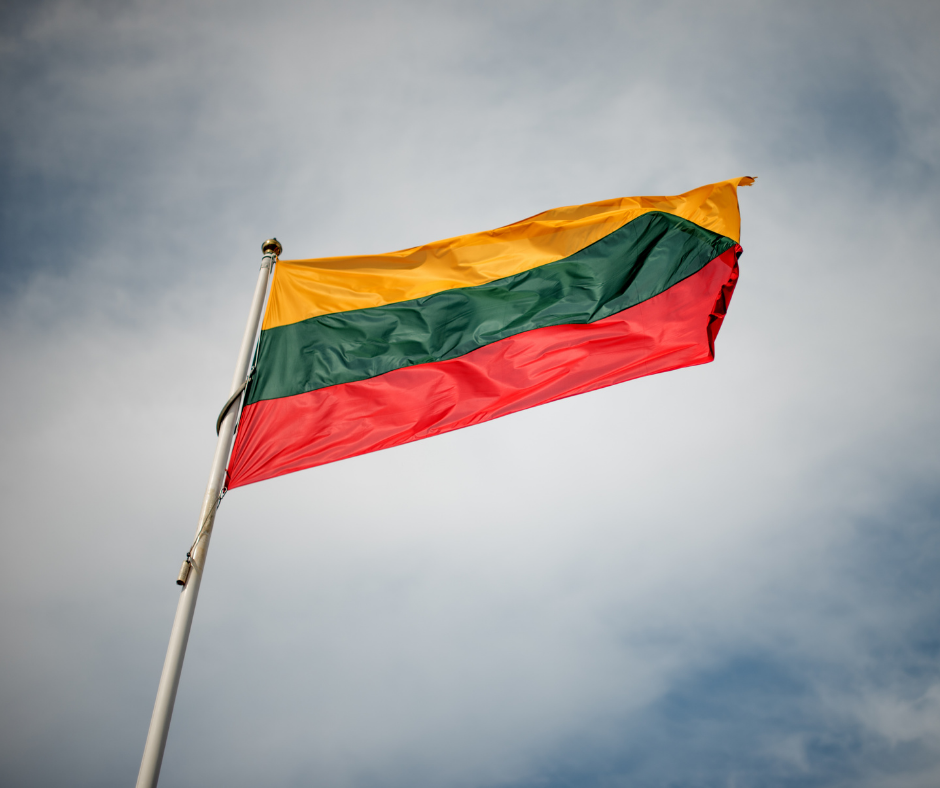My dear brother and sisters in Christ,
We are gathered here today to celebrate the crowning of King Mindaugas and, on this day of our statehood, listen to the first reading about how God brings together and creates his own people.
We often hear God called the God of Abraham, Isaac, and Jacob. God promised Abraham that all the land, from the river of Egypt to the great river Euphrates, would be given to his abundant seed and called for them to go to this Promised Land. God also accompanies Isaac, the son of Abraham, to whom Jacob is born. God promises to Jacob, after the battle described in the first reading: “And the land which I gave Abraham and Isaac, to thee I will give it, and to thy seed after thee will I give the land” (Genesis 35:12). God, having made a promise to Abraham, repeats it to his descendants, thus forming his people.
In today’s reading, we hear how Jacob and his family are heading towards the Promised Land. Having had everyone cross the river, he stays behind and wrestles with a stranger in the night. It is only from the conversation between Jacob and the angel does it become clear that he is wrestling with God. Pope Benedict XVI has reflected on this reading: “our whole life is like this long night of battle and prayer that is meant to end in the desire and request for God’s blessing, <…> as a gratuitous gift that allows us, in the end, to recognize the face of the Lord.” In this fight, Jacob is wounded, but at the same time receives a new name – Israel. A promise is born – the promise that a new nation will be built from Jacob’s twelve sons.
Statehood does not form easily, it always requires fight and sacrifice, as well as God’s blessing. In Scripture we can read how Israel continuously fights against God’s order, resists it, but also seeks God’s blessing. Unfortunately, resistance brings misfortune. These days, people often oppose God’s order. However, while God has given man the freedom to resist, such resistance even today does not bring happiness to people, societies or states.
In today’s Gospel, we hear about other battles: God refers to the need to fight demons. We hear that for this work we need workers. This fight is not just the work of priests or special exorcists. Every Christian is summoned to fight against evil – we can all be workers in this field of God.
These battles take place in three different places. The first battlefield is man. We are in an inner struggle where we are exposed to both good and evil. We seek God’s blessing, but also every day we are attacked by evil. At the beginning of each holy Mass, we confess that in this battle we have lost a little, but at the same time we ask God for help in further battles.
The second battlefield – society: the people next to us, our families, our communities. Perhaps we can say that this year our communities and society as a whole are under greater strain than ever before. Here it is important for us to not forget who we are fighting. First, we must remember that we are all brothers and sisters, and we are resisting the evil in the world. The Devil often takes advantage of people, trying to provoke them, crush them, tear them apart.
So often now we see and talk about hybrid war tactics. We should recognise that this is the Devil’s work. He uses deception to influence us, he uses fake news to rattle us, and has an entire army of seemingly innocent “little green men”. It is therefore important to note and see that, despite all this, we are all brothers and sisters and we must strive for unity. The current lack of dialogue in our society stems from the fact that we tend to forget that we are all brothers and sisters, all part of one nation.
The same fight takes place on a third battlefield – the international arena. Today we hear that there is a lot of discord, persecution, terror in the world. It is necessary for us to see here that we are all, as Pope Francis often reminds, one family, we are all brothers and sisters.
We must be able to recognise evil acting both in the East and the West, to see how the Devil uses others, and not personalise evil in another person.This will help us come back to the dialogue that we need in our families, societies, and in the world. We have a common home, and although today we commemorate a state holiday, we are all children of one God in the world created by Him.
Statehood, like family and our personal freedom, are gifts from God, which we must enjoy according to His will. The crown given to King Mindaugas by the Pope was a sign that God is in first place. In commemoration of Statehood Day, let us in prayer continue to ask God to bless us and our homeland’s future.
Amen.
The homily of Archbishop of Vilnius Gintaras Grušas
